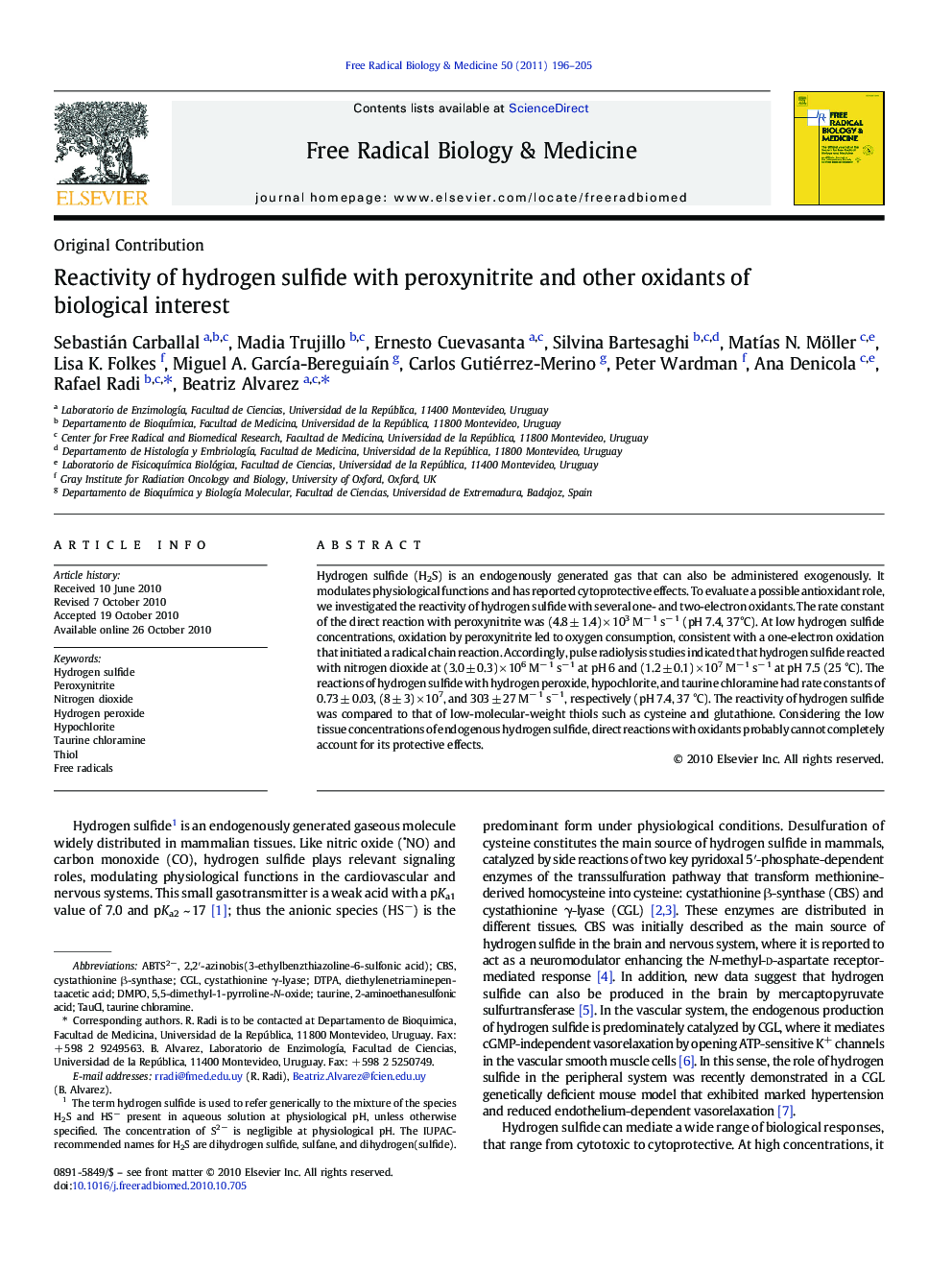| Article ID | Journal | Published Year | Pages | File Type |
|---|---|---|---|---|
| 1909181 | Free Radical Biology and Medicine | 2011 | 10 Pages |
Hydrogen sulfide (H2S) is an endogenously generated gas that can also be administered exogenously. It modulates physiological functions and has reported cytoprotective effects. To evaluate a possible antioxidant role, we investigated the reactivity of hydrogen sulfide with several one- and two-electron oxidants. The rate constant of the direct reaction with peroxynitrite was (4.8 ± 1.4) × 103 M− 1 s− 1 (pH 7.4, 37°C). At low hydrogen sulfide concentrations, oxidation by peroxynitrite led to oxygen consumption, consistent with a one-electron oxidation that initiated a radical chain reaction. Accordingly, pulse radiolysis studies indicated that hydrogen sulfide reacted with nitrogen dioxide at (3.0 ± 0.3) × 106 M− 1 s− 1 at pH 6 and (1.2 ± 0.1) × 107 M− 1 s− 1 at pH 7.5 (25 °C). The reactions of hydrogen sulfide with hydrogen peroxide, hypochlorite, and taurine chloramine had rate constants of 0.73 ± 0.03, (8 ± 3) × 107, and 303 ± 27 M− 1 s− 1, respectively (pH 7.4, 37 °C). The reactivity of hydrogen sulfide was compared to that of low-molecular-weight thiols such as cysteine and glutathione. Considering the low tissue concentrations of endogenous hydrogen sulfide, direct reactions with oxidants probably cannot completely account for its protective effects.
